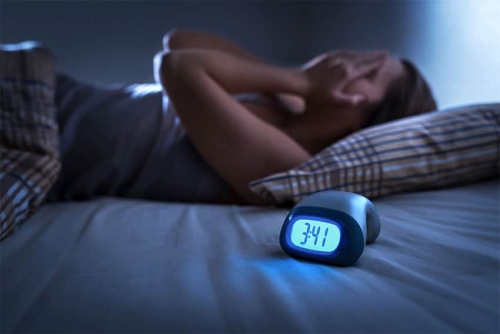‘Lack of sleep’ can hurt adolescents’ academic performance Julia Cassano
TDT | Manama
The Daily Tribune – www.newsofbahrain.com
Reported by Julia Cassano
While getting consistent sleep is vital for children and adolescents who are experiencing significant brain development, adolescents are notorious for not getting enough sleep.
RPSGT lab manager and co-founder of American Gulf Sleep Diagnostics Lisa Aylor said, “The American Academy of Sleep Medicine has recommended that children aged 6–12 should regularly sleep 9–12 hours per 24 hours, and teenagers aged 13–18 years should sleep 8–10 hours per 24 hours.”
Although this information may be well known among adolescents and parents, Aylor revealed that the average amount of sleep adolescents get is between 7 and 7.5 hours. Aylor highlighted that after puberty, there is a biological shift in an adolescent’s internal clock of about 2 hours, meaning that a teenager who used to fall asleep at 9 pm will now not be able to fall asleep until 11 pm.
In addition, this also means the adolescent is waking up 2 hours later in the morning. “Also worth mentioning, is the early high school start times. In most schools, the move to high school is accompanied by an earlier school start time. Some high schools start as early as 7 am, meaning that some teenagers have to wake up as early as 5 am to get ready and travel to school,” Lisa said.
Students face further obligations when the school day finishes for the day such as homework, sports, after-school activities, and socializing till late bedtime. Moody Aylor highlighted some of the aspects that could impact a teenager’s functioning.
She relayed that sleep deprivation can cause a teenager to become moody, irritable, and cranky, as well as have a difficult time regulating their mood. “Adolescents will begin to suffer behaviour swings as when teenagers are sleep deprived, they are more likely to engage in risky behaviours, such as drinking, smoking, driving fast, and engaging in other dangerous activities,” she said.
Most of all, she emphasised that a child’s academic performance can be severely affected as studies show that teenagers who get less sleep are more apt to get poor grades in school, fall asleep in school, and have school tardiness and absences.
Proactive ways Aylor stated the most proactive ways to help your adolescents get enough sleep by saying parents should become more involved with helping their child maintain a regular sleep schedule, avoid oversleeping on weekends, take afternoon naps (between 15-20 minutes), turn off televisions, computers, and radios and avoid caffeine and sugar.
She urged parents to contact a doctor if the adolescent has difficulty falling asleep, snores, or is extremely tired throughout the day. “Conducting sleep tests on your child can be an effective way to rule out any type of sleep disorder such as sleep apnea,” she said.
Related Posts

